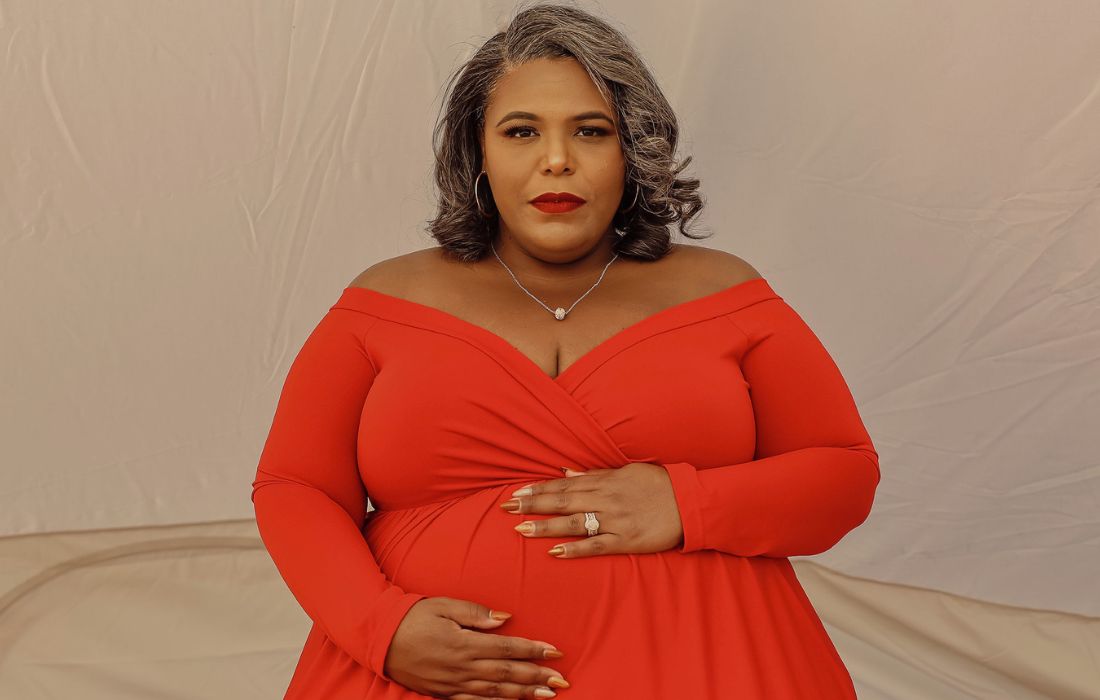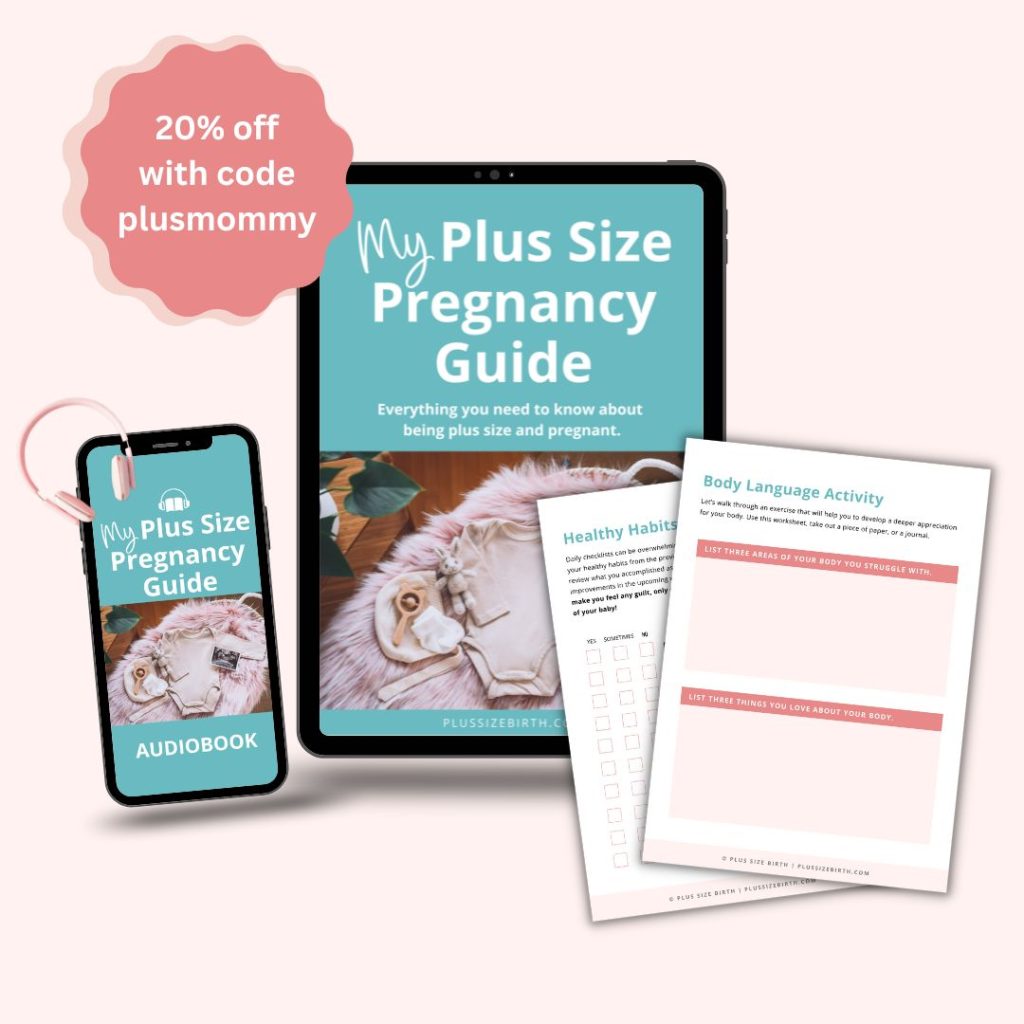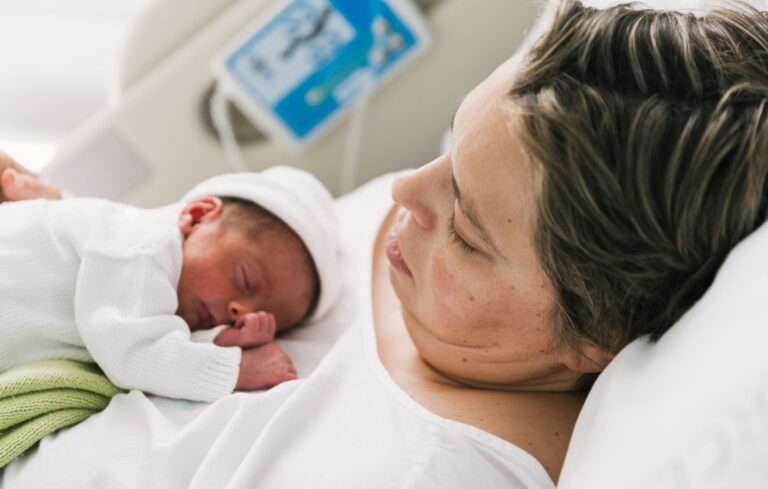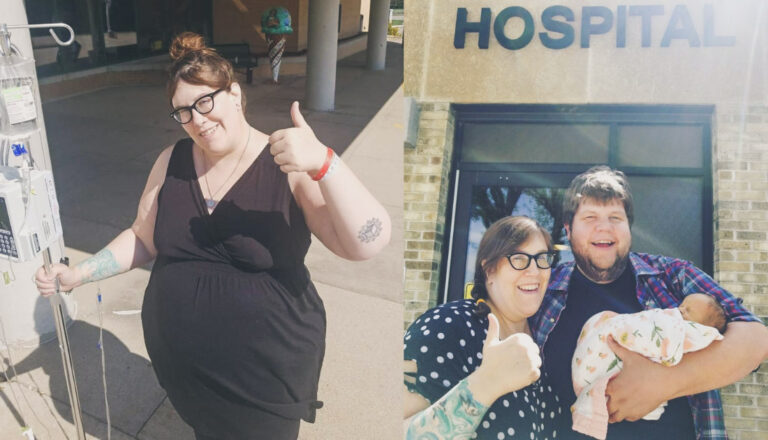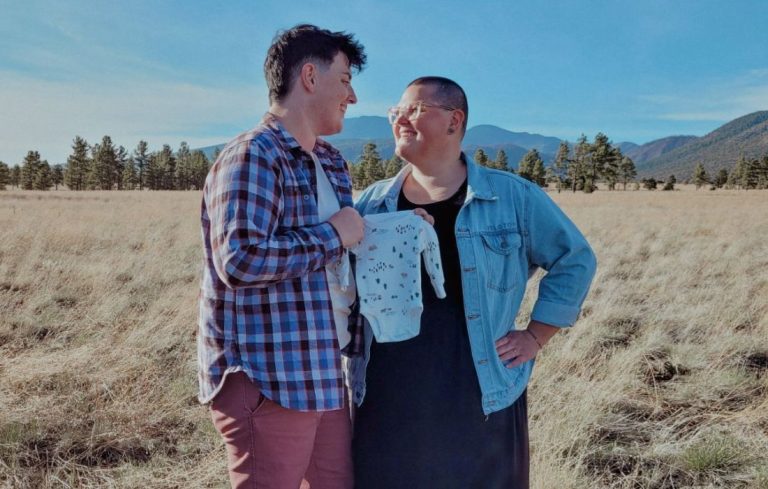One Story of Faith, Bias, and Advocacy in Plus Size Maternity Care
Sabrina, a nurse, shares her empowering journey through advocacy in plus size maternity care.
She underscores the importance of self-advocacy and informed decision-making, recounting her experience with using semaglutide and then discovering her pregnancy, navigating healthcare with religious beliefs that impact care, addressing racial biases, and health concerns during pregnancy.
Sabrina’s story is a powerful reminder of the need for size-inclusive, respectful, and culturally sensitive maternity care.
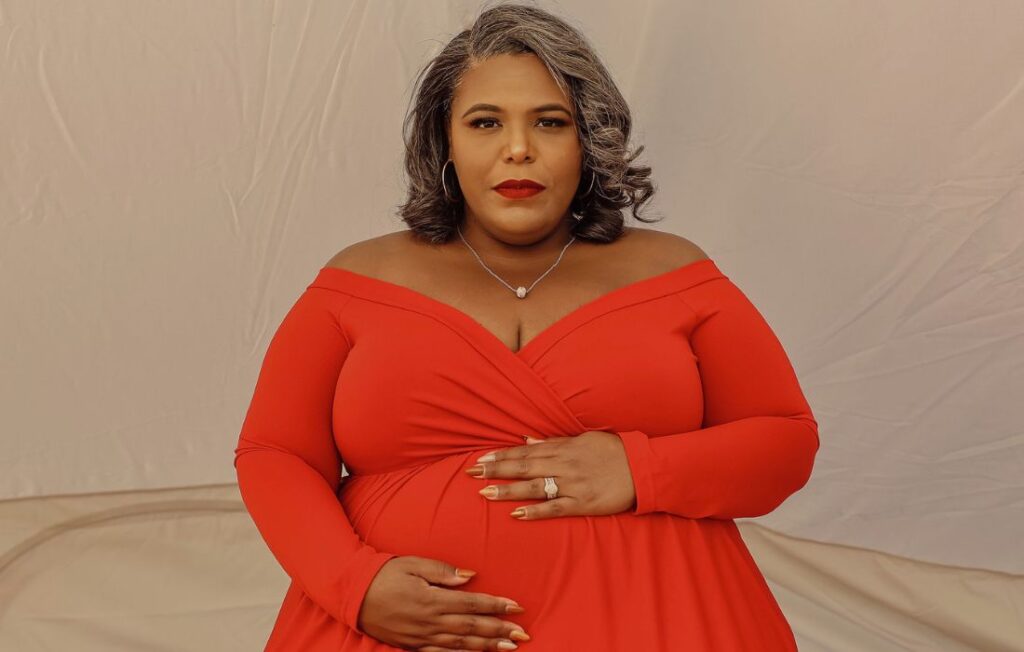
Advocacy in Plus Size Maternity Care
The Journey to Conception
Sabrina and her husband, already parents to a 12-year-old daughter, decided to expand their family.
Concerned about her weight, Sabrina embarked on a wellness journey, including using semaglutide (Ozempic) for weight loss.
After losing 40 pounds and noticing weight fluctuations, her healthcare provider suggested a pregnancy test, which came back positive.
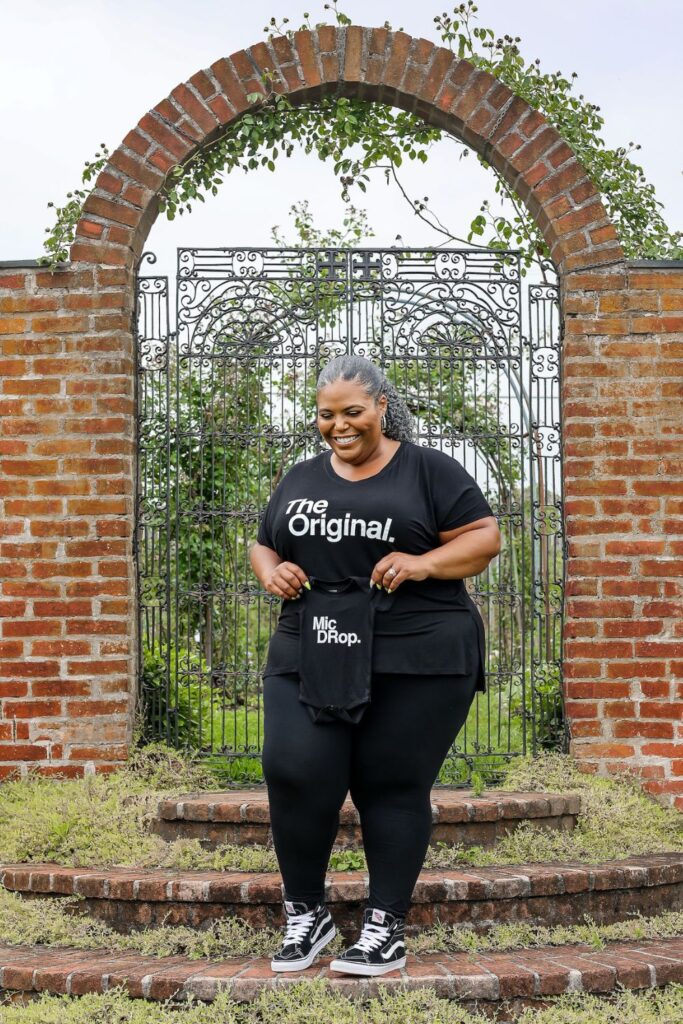
Concerns About Weight Loss Medication During Pregnancy
Sabrina was concerned about her recent use of semaglutide during pregnancy.
This medication, commonly used for weight loss, has limited research regarding its effects on pregnancy.
Sabrina’s healthcare providers were initially cautious but did not provide clear guidance or information about potential risks.
This lack of information added to Sabrina’s stress! It highlights the need for more research and better communication regarding weight loss medications during pregnancy.
Sabrina encourages using backup birth control if taking semaglutide and being sexually active. It’s also important to be aware of BMI restrictions for birth control.
Navigating Plus Size Maternity Care and Religious Beliefs
Throughout pregnancy, Sabrina faced numerous challenges, both emotional and medical.
One primary concern was finding a size-friendly healthcare provider, and she found the My Plus Size Pregnancy Guide helpful.
Her early encounters with her provider were reassuring, but her journey took a turn when she was unexpectedly transferred to a maternal-fetal medicine specialist at 20 weeks.
As a Jehovah’s Witness, Sabrina does not accept blood transfusions, a belief her initial care team was aware of. Despite this, they transferred her care without prior discussion, citing her religious beliefs, but her paperwork indicated concerns regarding her BMI.
This abrupt change caused significant stress and anxiety, leading Sabrina to question the motives and transparency of her healthcare providers.
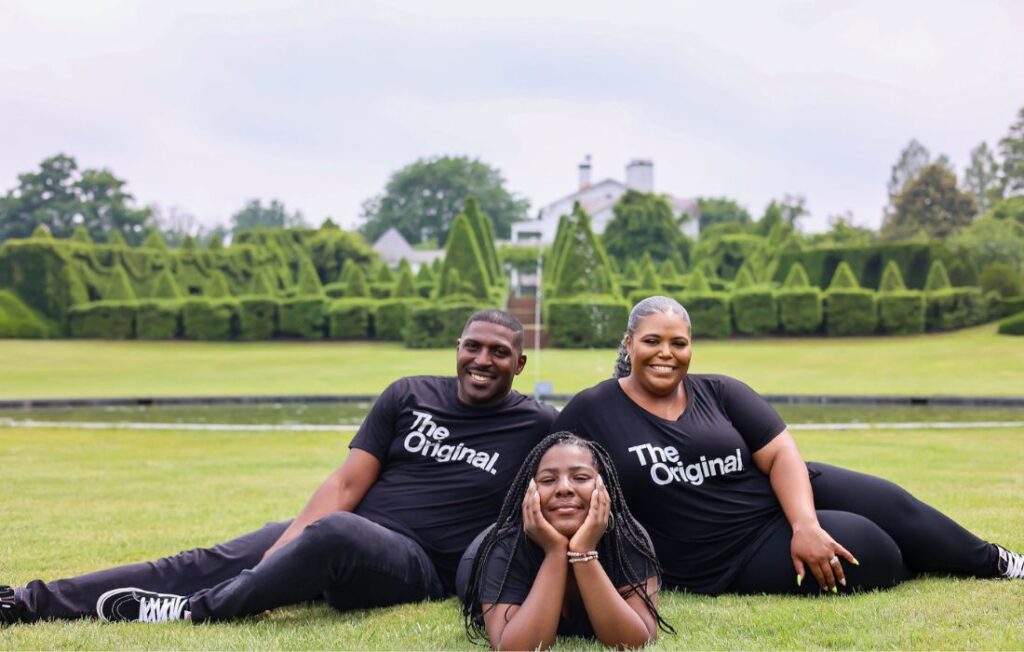
Addressing Racial Bias in Healthcare
As a Black woman, Sabrina was acutely aware of the higher mortality rates for Black families in childbirth.
She wanted to ensure her voice was heard and her concerns taken seriously by her healthcare providers.
This added another layer of complexity to her pregnancy as she navigated the systemic biases that often affect Black families in healthcare.
Sabrina’s determination to be heard and her insistence on receiving respectful and attentive care were crucial in her journey.

The Importance of Informed Consent
Sabrina’s experience highlights a critical issue in maternity care: the lack of full informed consent. She emphasizes the need for patients to be fully informed about their care decisions.
Sabrina’s transfer to a new care team at 20 weeks was handled poorly, leaving her feeling excluded from decisions about her own health.
Despite her anxiety, Sabrina continued to advocate for herself, asking questions and seeking clarity on her care plan.
Patients have the right to understand and participate in decisions about their healthcare.

Navigating Gestational Hypertension
At 36 weeks, Sabrina’s blood pressure spiked, leading to a diagnosis of gestational hypertension. She had some initial shock and concern, but her care team’s proactive approach helped manage her condition.
They monitored her closely, and Sabrina was scheduled for an early cesarean birth to prevent complications.

A Supportive Plus Size Birth Experience
Thanks to a detailed consultation with her anesthesiologist and a supportive care team, her cesarean birth was a positive experience.
The team accommodated her preferences, including playing Beyonce’s Renaissance during the procedure, which helped ease her anxiety.
This level of personalized care made a significant difference in her birth experience.

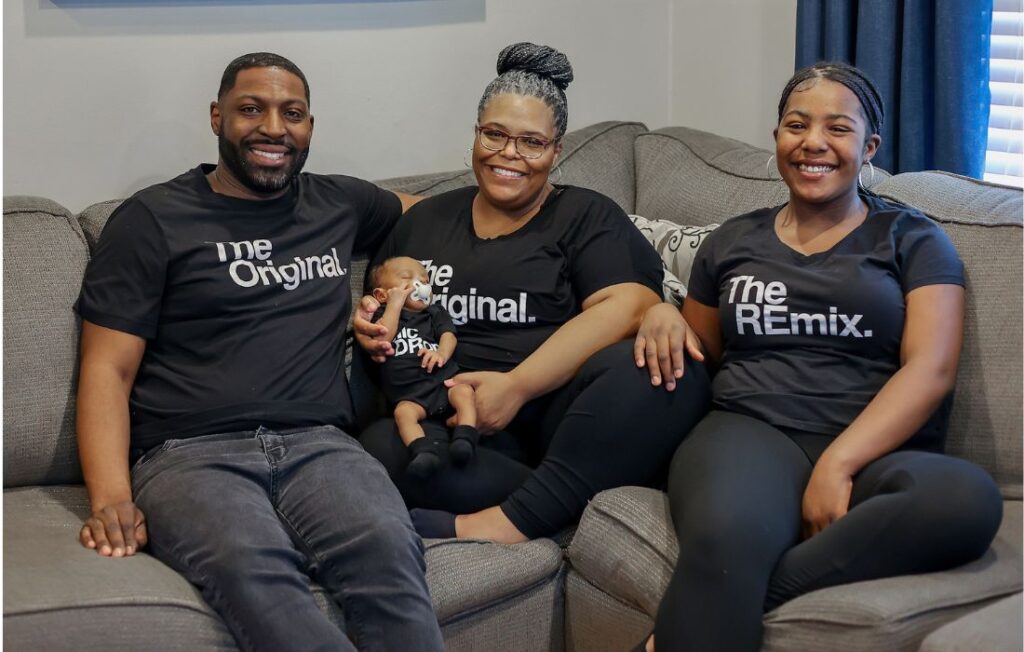
Sabrina’s journey underscores the importance of advocacy in plus size maternity care, informed decision-making, and the need for size-inclusive, respectful, and culturally sensitive care.
Listen to her full story during episode 221 of the Plus Mommy podcast.
Recording & Show Notes: Plus Mommy Podcast Episode 221
Transcript happily provided upon request.

